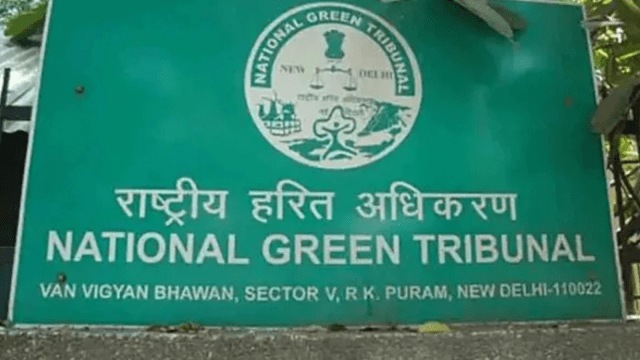NGT takes notice of NGO report on high chemical pollution in Bengaluru’s Arkavathi River, files suo motu case against Karnataka State Pollution Control Board
The report was based on studies conducted in February and March 2024 on the water quality in the Arkavathi River as it flows through what was once the western periphery of Bengaluru but is now an integral part of the burgeoning city.
 NGT takes notice of NGO report on high chemical pollution in Bengaluru’s Arkavathi River.
(File Image)
NGT takes notice of NGO report on high chemical pollution in Bengaluru’s Arkavathi River.
(File Image)Written by Brinda Srinivasan
The National Green Tribunal (NGT) has taken notice of a January 2025 report by the Paani Earth Foundation on high levels of chemical pollution in the Arkavathi River – which flows through the western part of Bengaluru – to take up a suo motu case against the Karnataka State Pollution Control Board.
The Arkavathi River, once considered the lifeline of Bengaluru, is now contaminated with several harmful pollutants, Paani Earth’s report highlighted in January 2025. The report, ‘Uncovering the Hidden Pollution in the Arkavathi: Emerging Contaminants Impacting Bengaluru and Beyond,’ was produced in collaboration with the International Centre for Clean Water.
The report was based on studies conducted in February and March 2024 on the water quality in the Arkavathi as it flows through what was once the western periphery of Bengaluru but is now an integral part of the burgeoning city.
The study conducted across seven locations revealed that the river is unable to break down chemicals entering it, resulting in the accumulation of pollutants.
As part of the Paani Earth study, researchers tested 65 parameters in water samples and 20 parameters in soil samples across the seven sites and focused on pesticides, industrial and hazardous organic pollutants, and heavy metals.
The study “confirmed the presence of emerging contaminants and toxic pollutants, many exceeding international standards and posing long-term risks to ecosystems and human health.” Concentrations of banned pesticides like Dichlorodiphenyltrichloroethane (DDT) and Endosulfan sulfate were recorded up to 25,000 times above accepted limits by the study.
“India’s regulation of chemicals is a lot on paper, but not on the ground. So, we were not surprised when we found pesticides in the river that were banned by the Stockholm convention,” said Madhuri Mandhava, a trustee at Paani Earth Foundation.
Heavy metals like Mercury were found to be 26 times in excess of international standards; industrial pollutants like polycyclic aromatic hydrocarbons were found to be 3,000 times in excess, and excessive phosphorus levels were found at all sites.
Widespread use of phosphate-based detergents is what has led to foaming in the rivers, which can cause irreversible damage. Although phosphate-free alternatives are available, they remain very expensive, and adoption of this will not happen automatically, Mandhava said.
Based on the findings, the Paani Earth Foundation submitted petitions to the Central Pollution Control Board and the Bangalore Water Supply and Sewerage Board (BWSSB) to initiate measures to reduce the pollution in the river.
In March this year, NGT took up a case against the Karnataka State Pollution Control Board on the basis of the findings of the report. The case has been adjourned, and the next hearing will be taken up in July.
The Paani Earth Foundation, in its petition to the Central Pollution Control Board, has sought expansion of the parameters monitored under the National Water Quality Monitoring Programme to cover emerging contaminants and upgradation of monitoring infrastructure.
In its submissions to the BWSSB, the Paani Earth Foundation has sought measures to arrest the flow of industrial wastewater into the Arkavathi River and sewage treatments in rapidly urbanising regions like Nelamangala in the upstream locations of the Arkavathi.
(Brinda Srinivasa is an intern with The Indian Express)












